If you work with humans in any healing, helping, or therapeutic capacity, the body will always be part of the conversation.
Even if your clients don’t use the word ‘trauma,’ you’ll notice how past experiences live on in physical symptoms, emotional patterns, and nervous system responses. We store what we’ve lived through in our bodies, all the more so when what happened to us felt overwhelming, had to remain unspoken, or is still unresolved.
Understanding this connection can deepen the work, making your sessions feel safer, more attuned, and more effective. In recent years, some brilliant thinkers and writers have made this territory more accessible.
Trauma and the Body: 7 Books for Therapists
Here are 7 powerful books that explore the relationship between trauma and the body. Whether you’re new to the field or deep into your practice, these titles can help ground your understanding and open up new ways of working with compassion and care.
1. When The Body Says No: The Cost of Hidden Stress
By Dr Gabor Maté
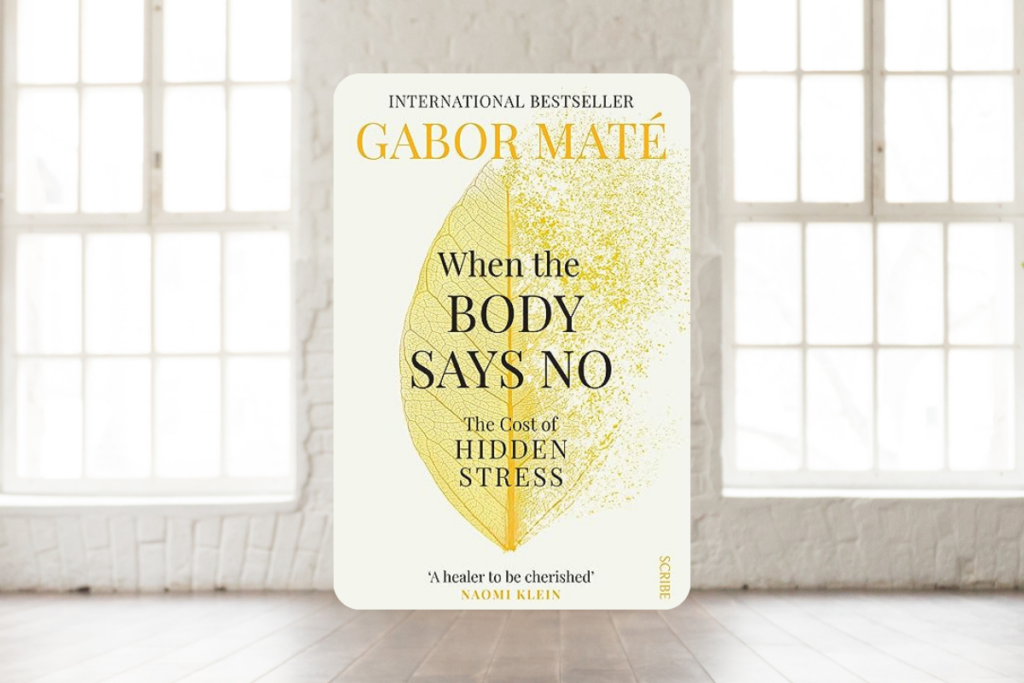
If you’ve ever wondered how chronic stress, unexpressed emotions, or early-life patterns show up in illness, this book is a must-read. Gabor Maté draws from decades as a physician to show how the body often says “no” when we’ve been conditioned to always say “yes.”
It’s a powerful blend of storytelling, case studies, and science. The author makes it clear that this is not about blame, but about gently inviting self-reflection: How might unacknowledged pain be shaping our health? How can reclaiming our voice and agency support healing?
2. The Body Keeps The Score: Brain, Mind and Body in the Healing of Trauma
By Bessel van der Kolk
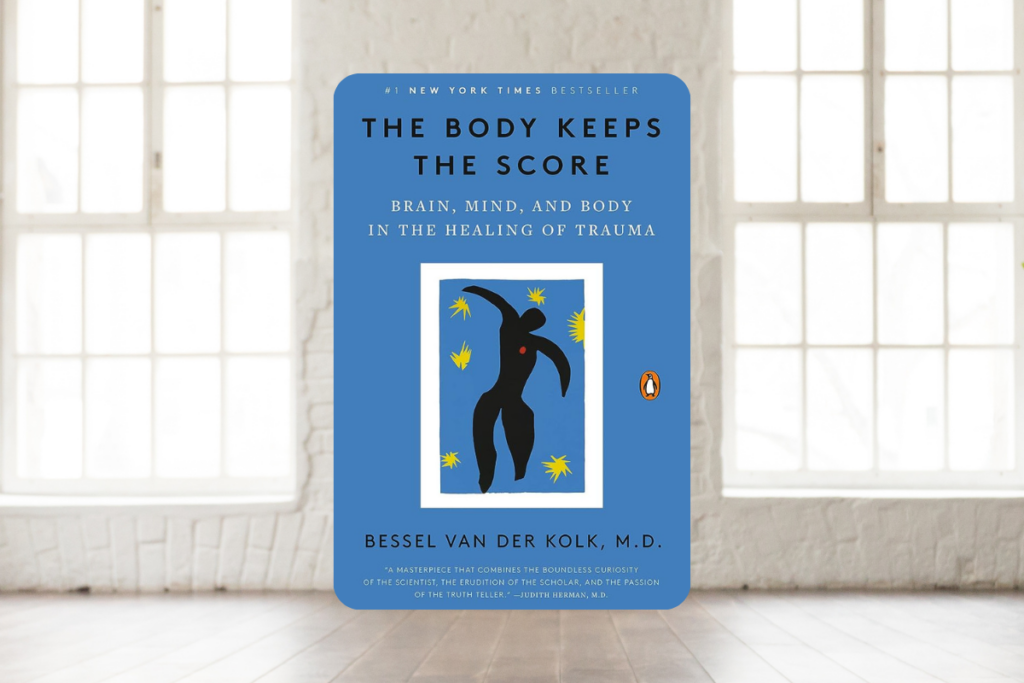
A classic for a reason. Bessel van der Kolk weaves together neuroscience, clinical insight, and lived experience to show how trauma impacts every layer of being, and how healing happens through reconnection: to self, to others, and to the body.
If you’re curious about why certain therapies work so well (like EMDR or somatic experiencing), this book makes it clear.
3. What Happened to You? Conversations on Trauma, Resilience, and Healing
By Dr Bruce D. Perry & Oprah Winfrey

Whether or not you work specifically with trauma, understanding its effects and the essential elements of healing and recovery will always contribute to the space you hold for your clients.
What Happened to You? is written by Dr Bruce Perry (neuroscientist and expert in childhood trauma) and Oprah Winfrey, with empathy, clear-sightedness and storytelling. Highly recommended for students and practitioners of manual therapies, talking therapies, or any work that helps humans to heal. It asks the question: how does the possibility of healing change when we shift away from questions like ‘What’s wrong with you?’ towards asking ‘What happened to you?’
4. My Grandmother’s Hands: Racialized Trauma and the Pathway to Mending our Hearts and Bodies
By Resmaa Menakem
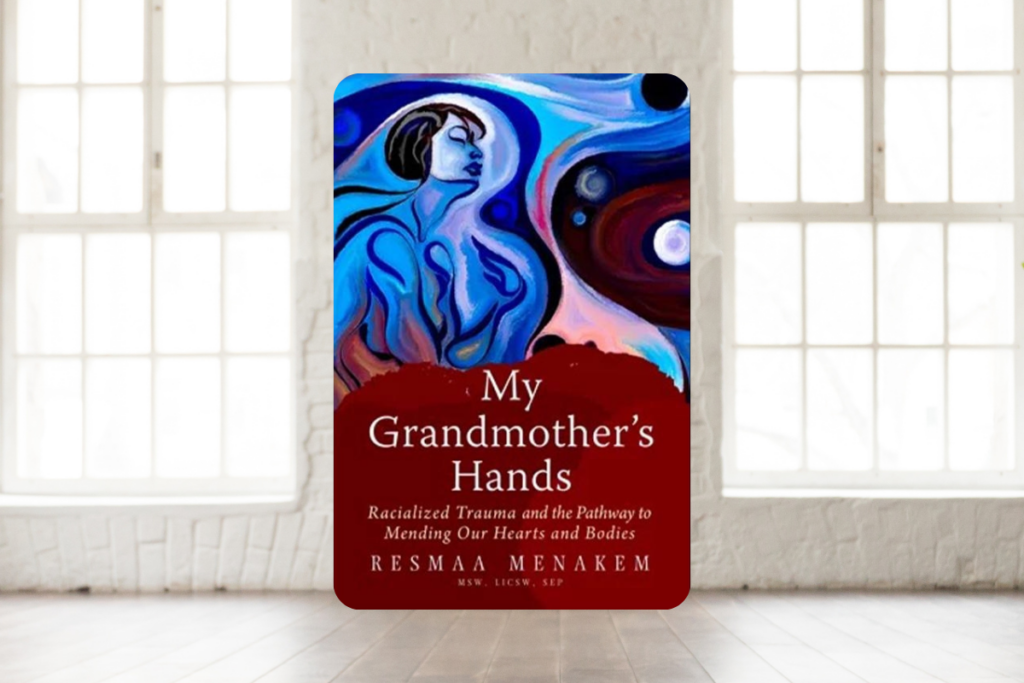
Resmaa Menakem is a therapist with a background in social work, specialising in trauma, body-centred psychotherapy and violence prevention, and in this book he traces the effects of white supremacy on all of our bodies and psyches.
My Grandmother’s Hands takes you on a historical journey, and brings in decades of trauma psychology and research. Very readable and written with warmth and insight, it’s a much needed and hopeful book, particularly in its focus on collective trauma. As Menakem writes, “our approaches for mending must be collective and communal as well.”
5. The Myth of Normal: Trauma, Illness and Healing in a Toxic Culture
By Gabor Mate
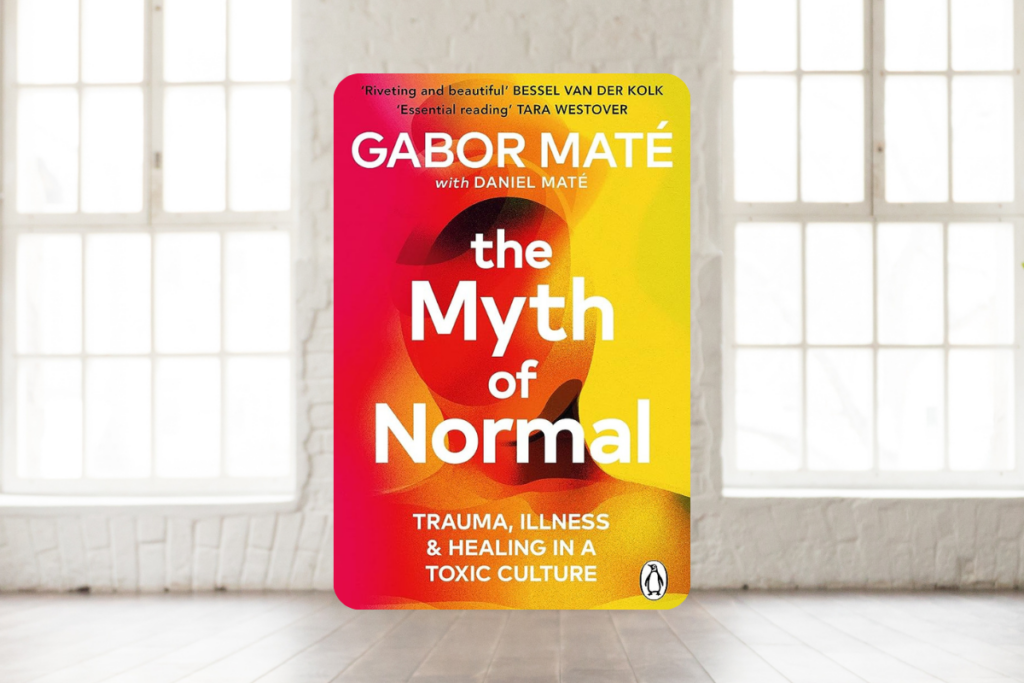
A solid and groundbreaking critique of the ways our culture actually creates illness and trauma, and a dismantling of the myths we’ve been taught about what ‘normal’ means.
This is such a life-affirming, compassionate and ultimately hopeful approach, that’s relevant to everyone, particularly if your work is about helping people to heal, and to be more fully themselves.
6. The Body Never Lies: The Lingering Effects of Hurtful Parenting
By Alice Miller
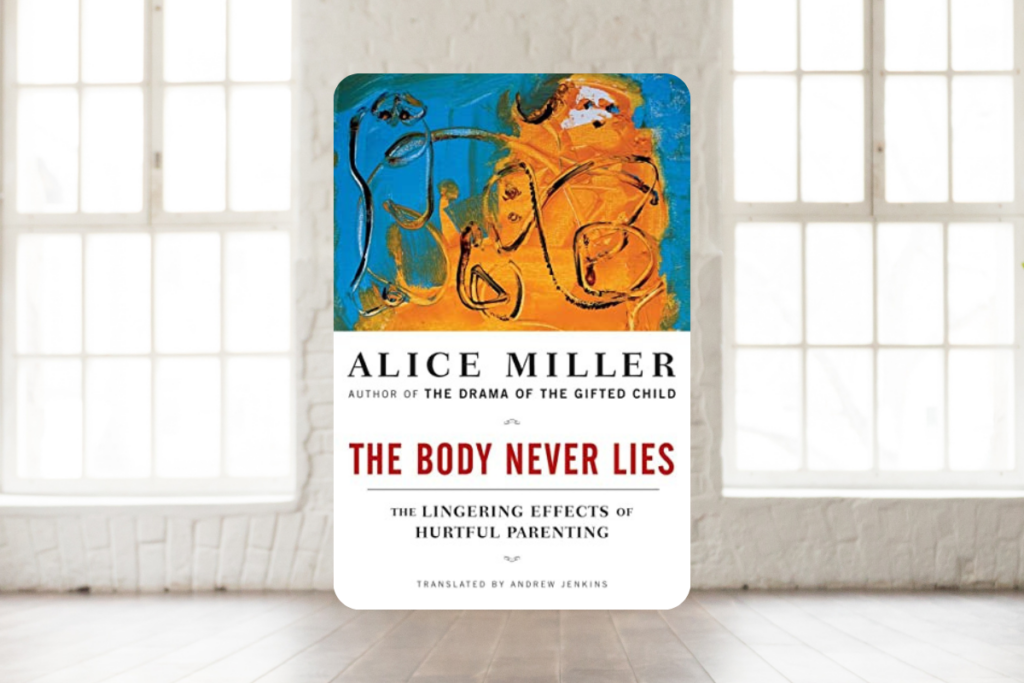
One of the most important books written about the effects on adult health of powerlessness and abuse in childhood. Here, Alice Miller shows the link between certain approaches to childrearing, a diminishment of dignity and the resulting relationship between trauma and the body. And how, when denied and suppressed, this can lead to a lifetime of illness and struggle.
This is a truly compassionate book that shows how honouring the ‘truth’ of our feelings and lived experience is a path to healing and transformation, and the way to stop this cycle being passed onto future generations.
7. The Pocket Guide to The Polyvagal Theory: The Transformative Power of Feeling Safe
By Stephen Porges
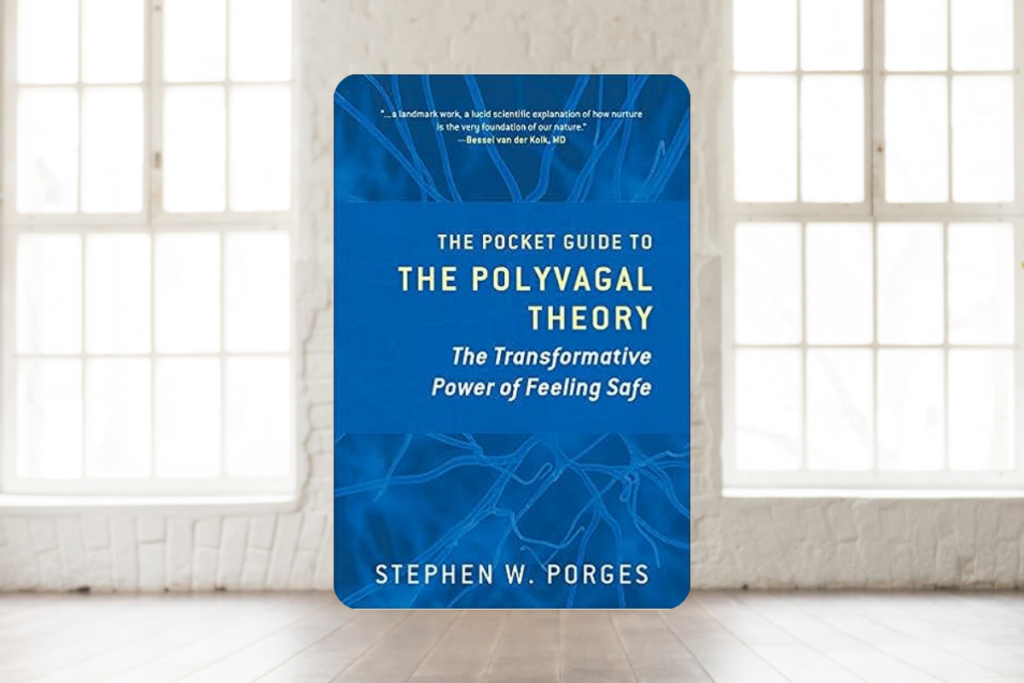
Stephen Porges writes that “the safety is the treatment.” In other words, that “safety is defined by feeling safe and not simply by the removal of threat”.
Particularly relevant for therapists who want to understand how our nervous systems register ‘cues of safety’ in our surroundings, in facial expressions, in tones of voice, in bodily sensations. An essential read in support of creating a greater sense of safety, mutuality and belonging within your clinical practice.
Did you enjoy this post?
Sign up for the free newsletter and receive a round up of the latest posts, insights and resources for therapists – delivered straight to your inbox! Click here to sign up.
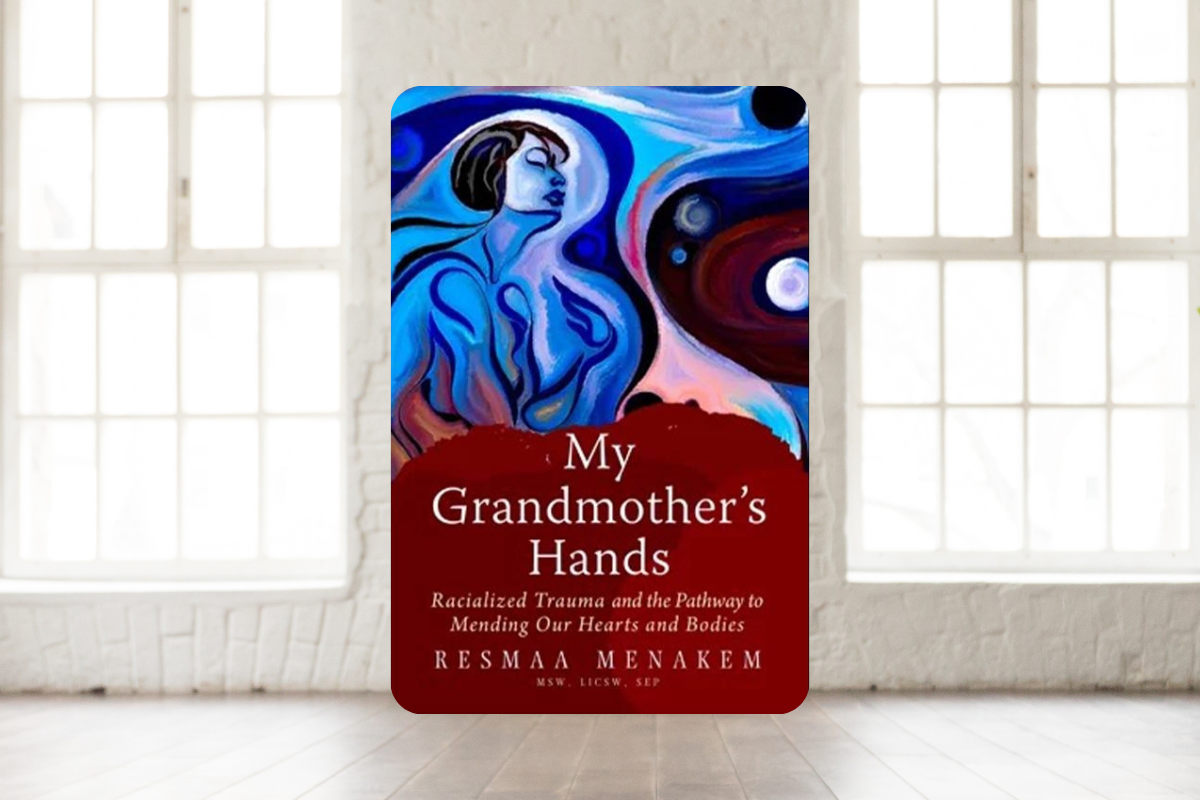
+ show Comments
- Hide Comments
add a comment